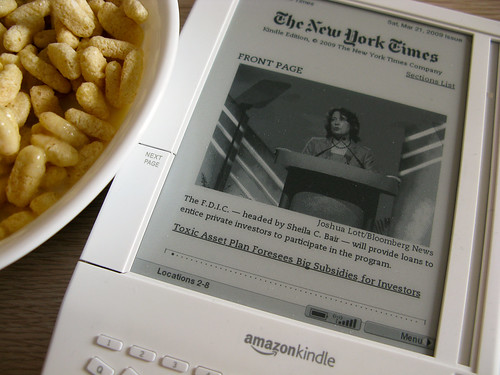
What kind of year was it for the media? Well, not all bad, according to "After a Year of Ruin, Some Hope," a media column by David Carr in the New York Times.
Some highlights:
- Bloggers are getting serious, breaking stories and showing that good journalism isn't the sole domain of "old media"
- Technology-fueled media start-ups are showing the way to "media next"
- TV is far from dead when you consider breakthrough hits such as "Mad Men" and "Glee"
- Dave Eggers and his friends print ... a Newspaper!
... The constellation of local news sites put together by ex-newspaper folks include the big and well-financed like Texas Tribune (www.texastribune.org), the small and charming like Baltimore Brew (baltimorebrew.com) and some experiments that seem less tentative all the time, like MinnPost (www.minnpost.com) and Voice of San Diego (www.voiceofsandiego.org).Bring on 2010.
It’s a reminder that journalists will do anything to avoid getting real jobs, including conjuring a new kind of workplace that doesn’t include any of the legacy costs of trucks and printing presses.
Updated ... See also:
- Jason Linkins on "Ten Things That Did Not Suck About the Media in 2009"
- JL on "Ten Things That Totally Sucked About the Media in 2009"
Photo credit: "Cover of the Last Edition of the Rocky Mountain News" by Scorpions and Centaurs, courtesy of Flickr.com/Creative Commons








